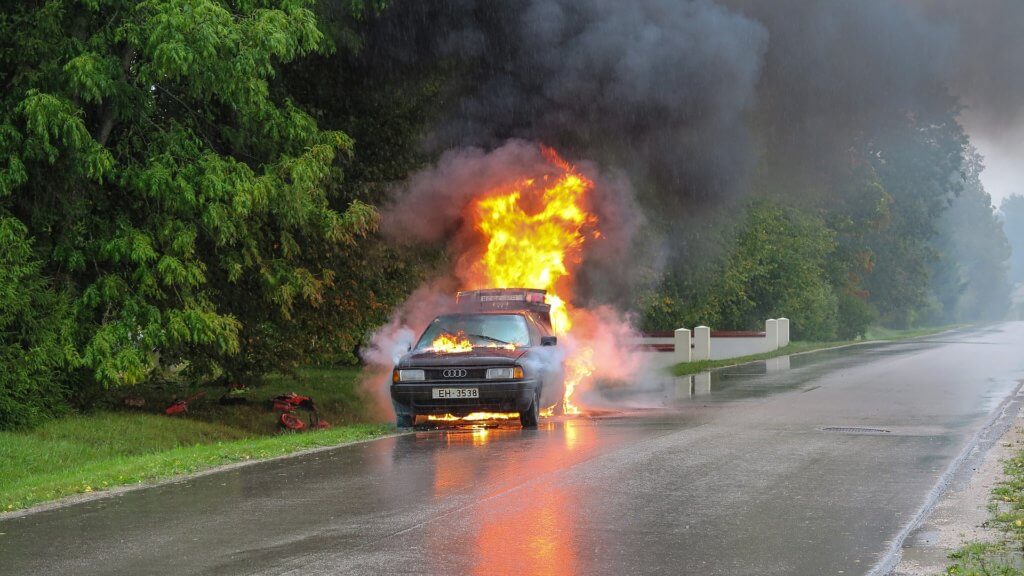“Wait, you were on a jury? I thought lawyers always get struck from the jury.”
That’s a common misconception. Truth is, lawyers can and do serve on juries. Sometimes.
In Texas, where I have a civil litigation practice focused on non-compete and trade secret cases, there is no rule prohibiting lawyers from serving on a jury. Even judges can serve on juries.
But won’t the lawyers who are trying the case use their peremptory strikes to keep other lawyers off the jury?
Often they do. That probably explains why it’s rare for lawyers to get on juries.
But why do lawyers tend to get struck from jury service?
Based on purely anecdotal evidence, I’ll hazard a guess that there are two main reasons.
Why Lawyers Don’t Often Get On Juries
The first is simple. If you’re a lawyer on the jury panel, you’re going to attract immediate attention.
If you’ve ever been part of the jury selection process, you’ve probably learned that the people who are first in line to get struck are the ones who are not shy about voicing their opinions.
Want to avoid jury service? Speak up early and often during jury selection. And let the hot takes fly.
Think about it. The people who draw the most attention and express the strongest opinions will be the most scrutinized by the lawyers deciding who to strike.
You know who gets on a jury? The people who barely said a word during jury selection. They gave simple yes or no answers to the questions and didn’t say anything controversial.
More about that later.
I think the second reason lawyers tend to get struck is that they are likely to be “leaders” on the jury. The lawyers handling the case pay special attention to potential leaders during jury selection. If you look like the leader type and you have views that seem to favor one side or the other, even a little bit, there’s a good chance you will get struck.
So how did I manage to get on the jury?
Well, first let me say a little about the case. I’m not going to name names, partly out of respect for the victim’s family, but I’ll tell you it was a criminal case. And not just a criminal case, but a felony case. Felony murder, to be exact.
The basic facts were as follows. The victim was a college student who was selling drugs. Defendant and Accomplice 1 met the victim in a garage in a residential neighborhood to buy a brick of marijuana. Accomplice 2 was the lookout. There was some kind of confrontation, and the victim was shot and killed. Accomplice 3 later buried the body in the country.
It turned out these facts were not really in dispute. There was some hint that maybe Defendant would claim he shot the victim in self-defense, but that never really panned out. The question came down to whether Defendant and his accomplices planned ahead of time to rob and murder the victim.
During jury selection there were questions that were obviously focused on issues specific to the case. But the judge started the questioning by going over basic issues that apply to any criminal case, like the burden of proof and the effect of the defendant declining to testify.
Only twice did I say more than few words in response to questions from the judge and the lawyers.
How Did I Get on the Jury?
The first time was when the judge, knowing I was a civil litigator, enlisted my help in explaining the burden of proof in a civil case. I said usually it’s preponderance of the evidence. Then she had the gall to ask me the standard for “clear and convincing” evidence. I gave a somewhat coherent answer. Nothing remotely controversial.
The second time I spoke up was when the judge was asking why a defendant might exercise his Fifth Amendment right not to testify. People gave some decent answers, but I felt like they were ignoring an obvious one: because his lawyer told him to. So I said that, and people laughed a little. “Of course the lawyer would say that!”
I had a feeling the prosecutors would strike me. Not that I said anything anti-prosecution or anti-police, but as a general rule I’m guessing the prosecution doesn’t want analytical thinkers on the jury. They want intuitive thinkers who will just feel like the defendant is guilty. They don’t want some lawyer who’s going to pick their case apart.
Plus, by offering an explanation for a defendant pleading the Fifth, I figured I would stand out as someone who wouldn’t be bothered by the defendant refusing to testify. (In contrast, there were other people on the panel who openly acknowledged this would really bother them.)
But when it came time to seat the jury, my number was called.
I surmised that my remarks were bland enough not to raise concern, or maybe the prosecutors had to use their strikes on people they found more objectionable. Plus, other than the mild comment about pleading the Fifth, I never volunteered any opinions.
So there I was the following Monday morning, sitting in the jury box listening to opening statements. By Friday afternoon we rendered a verdict.
What did I, an experienced civil litigator, learn from serving on a jury in a criminal case?
In short, I learned a lot. On the other hand, I don’t think I learned anything terribly surprising.
Most of the lessons reinforced the obvious. Let’s start with those.
Don’t Ignore the Elephants in the Room
The first trial lawyer lesson I learned from serving on a jury is that you shouldn’t ignore the elephants in the room.
I’m talking about the obvious facts the jury is likely to focus on that could hurt your case. As a general rule, you need to bring those up early and let the jury know how you’re going to handle them.
The prosecution did a good job bringing up one of the elephants during jury selection: the fact that the victim was a drug dealer.
Related to this, the prosecutor also brought up the fact that you don’t get to pick who your witnesses are in a criminal case, and often the witnesses to a drug deal gone bad are going to be some unsavory characters (and they were).
The prosecutor also brought up another fact that really shouldn’t be an elephant, but let’s face it, it is, or at least it can be for some jurors. The victim was a member of a racial and religious minority.
I think bringing up these issues served two purposes. One, to identify any people on the jury panel who might have a problem with who the victim was. Two, to start laying the groundwork for expressing to the jury that it doesn’t matter whether you like the victim or not. Murder is murder.
But there were a couple elephants I thought the prosecutors should have pointed out sooner.
Before I get into those, let me say that the two career prosecutors did a very good job with the case. They had a lot of witnesses and evidence to manage, including expert testimony, and I know that’s not easy. These are admittedly just quibbles.
Still, one thing that bugged me from the start of the case was motive, or the possible absence thereof. The prosecution hinted at this during jury selection when they pointed out you don’t have to prove motive to prove the elements of felony murder.
But if you’re sitting on a jury and the big issue is whether the defendant planned to kill the victim or not, you want a motive. It’s only natural.
I remember after the first day of trial thinking, it seems like the prosecution is going to have plenty of evidence, but I’m not sure why this young small-time drug dealer would just wake up one morning and say “I think I’ll lure this other drug dealer to a garage and shoot him.”
Eventually the prosecution’s theory of motive came into focus. Defendant and his accomplices thought the victim would be carrying a large amount of cash. They planned to kill him and take the drugs and cash. But it took some time for this to become clear to me. And even then, I had some skepticism about the motive.
The other elephant was Accomplice 1.
You see, Accomplice 1 was the only person alive who witnessed the shooting, other than Defendant. So naturally we were looking forward to hearing his testimony.
But Accomplice 1 never testified.
That was understandable, but we didn’t know whether Accomplice 1 would testify until the evidence closed. I for one, was a little in suspense about this. I guessed that Accomplice 1 might refuse to testify, but I really didn’t know until the end.
Suspense is good for a courtroom drama, or a blog post, but for an actual trial, not so much. I don’t think you want to leave the jury in suspense about whether a key witness is going to testify or not.
So if I had been the prosecutor, I might have said something in my opening statement about Accomplice 1 not testifying. (Caveat: I don’t know what constraints the judge imposed out of the hearing of the jury.)
Again, I’m quibbling a little. And I’ve got some quibbles with the defense counsel too.
That brings me to my next somewhat-obvious trial lawyer lesson from serving on a jury.
You Need a Consistent Argument
In theory, the defendant in a criminal case can just sit back, let the prosecution present its evidence, and then poke holes in the prosecution’s case. That’s because the prosecution has the burden of proof.
The same is true in a civil case. The plaintiff has the burden of proof (just by a different standard, preponderance of the evidence, rather than beyond a reasonable doubt). The defense doesn’t have to prove anything.
In theory.
In practice, if you’re representing a defendant in a criminal or civil trial, you need to persuade the jury that your client didn’t do the things he’s accused of. And to do that, you need a consistent, coherent theme that you develop from start to finish.
Sitting on a jury in a criminal case, I saw what happens when the defense lawyer doesn’t do that. The defense lawyer had a pretty good theme: just because someone says it’s so doesn’t make it so.
Ok, fair enough. But I needed more than that.
It was never really clear to me what exactly the defense wanted us to think happened in the garage that fateful day. Were they claiming the victim pulled a gun first? Was Accomplice 1 the shooter? Were they saying Defendant was the shooter, but acting in self-defense?
By closing argument, the defense lawyer was admitting Defendant shot the victim, but arguing the shooting was not planned.
I can understand why the defense lawyer in a criminal case would want to keep his options open, and not get locked in to one theory at the start of the trial. Maybe you want to see how the accomplice witnesses do on the stand. Maybe you’re trying to keep some key expert testimony out. You may be waiting to decide if your client is even going to testify. There are plenty of reasons to avoid getting pinned down.
But when the prosecution has a lot of evidence, if you’re going to have any chance of persuading the jury, I think you’d better have a consistent defense theory that you explain in opening statement and methodically develop throughout the trial.
That did not happen. And it hurt the defense.
My takeaway for defense lawyers in criminal and civil trials: you need a consistent, coherent argument that you make and support from start to finish.
An obvious point? Maybe.
But I also learned some less obvious lessons from serving on a jury.
I’ll cover those in Part 2.
________________________

These are his opinions, not the opinions of his firm or clients, so don’t cite part of this post against him in an actual case. Every case is different, so don’t rely on this post as legal advice for your case.




Leave a Comment